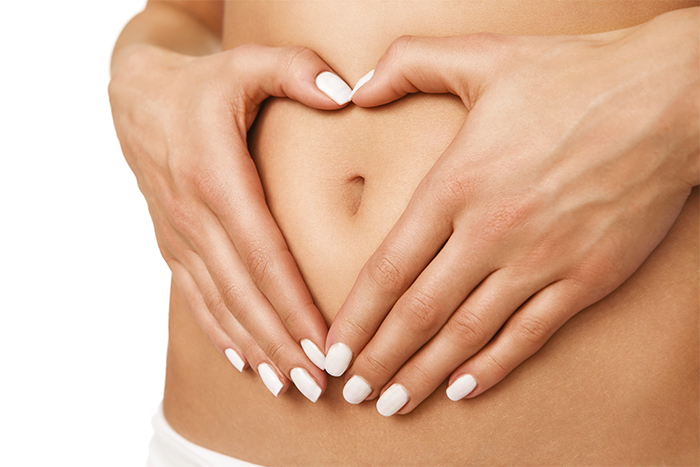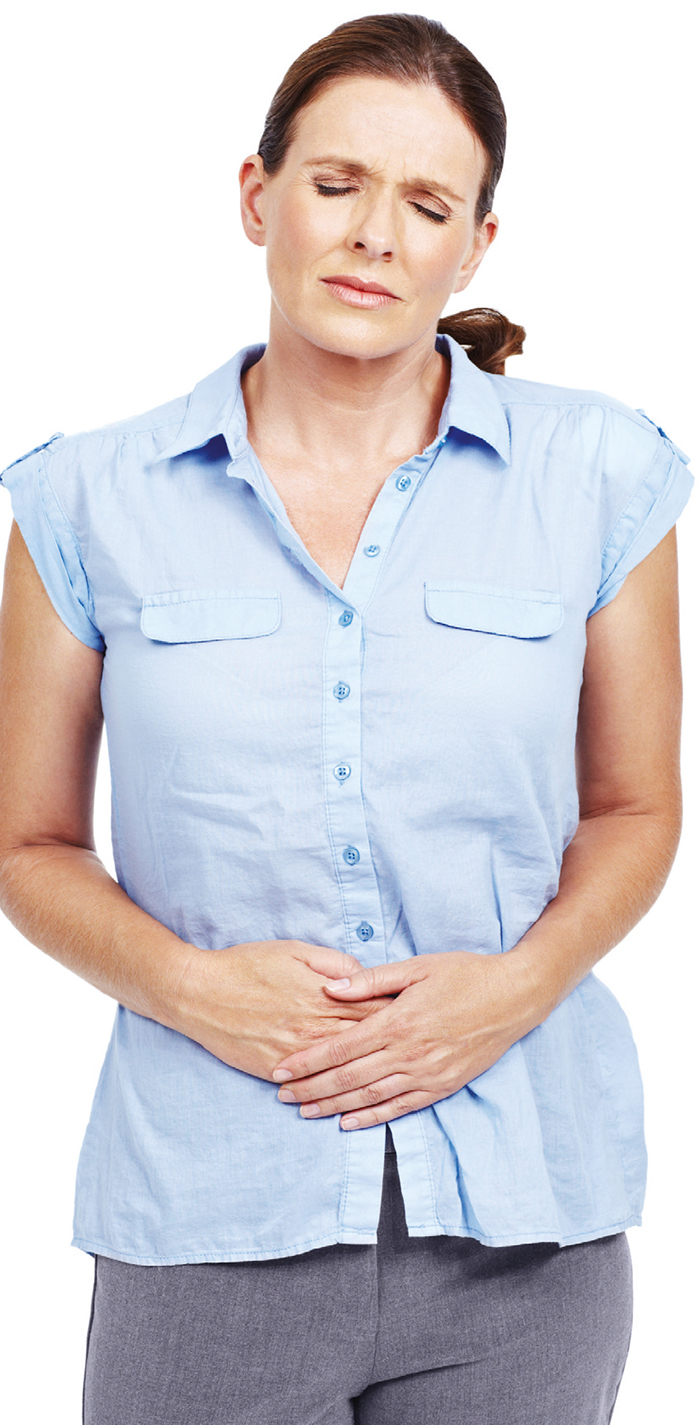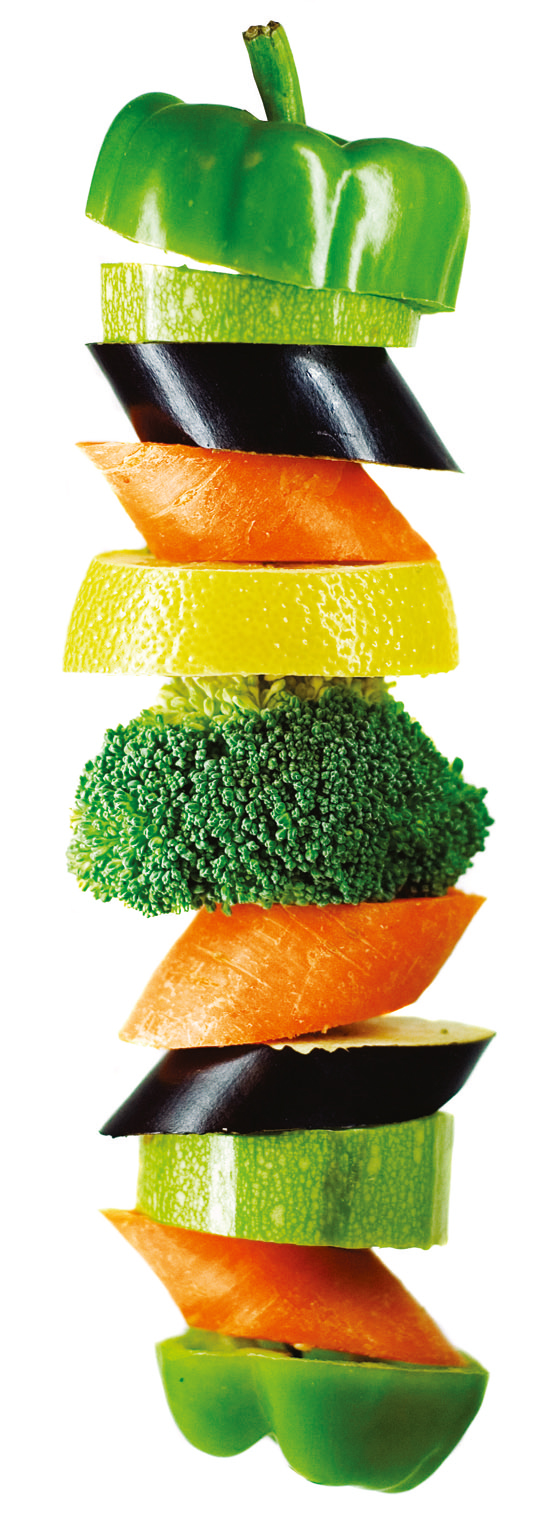Gut reaction
In Conditions
Follow this topic
Bookmark
Record learning outcomes
Digestive problems are commonplace, if a little embarrassing, and although they will often settle down on their own, it's possible to reduce their likelihood and treat symptoms. Here we look at dealing with some frequently asked digestive health questions

Digestive health questions and queries are common in pharmacy, so it's essential to know how to advise customers effectively and appropriately. Here, we find out what the experts would suggest for some of the most common digestive problems.
My GP prescribed antibiotics for an infection, but now I'm experiencing diarrhoea. Are the two linked?
Antibiotics are taken to rid the body of bad bacteria that are causing an infection, but in doing so they also wipe out good gut bacteria, causing a bacterial imbalance in the gastrointestinal tract. This can result in loose stools or diarrhoea. Speaking on behalf of the British Society of Gastroenterology, Dr Ayesha Akbar, consultant gastroenterologist at St Mark's Hospital, Harrow, explains:
€Any antibiotic can potentially cause diarrhoea as a side effect, but particularly penicillin-based antibiotics. Some can also cause Clostridium difficile, which is a bacterial infection and is more common in elderly people. It's characterised by persistent diarrhoea, stomach cramps and fever. If this is suspected then people should see their doctor and send off a stool sample to check.€
Diarrhoea caused by antibiotics is usually quite mild and will clear up on its own, but steps can be taken to prevent or limit it. Taking antibiotics before or with food and keeping well hydrated can help, as can eating simple and easy to digest foods such as rice and pasta. €In terms of prevention, taking probiotics alongside antibiotics can help, but they have to be taken from the start of the antibiotic course, not after the diarrhoea has started,€ says Dr Akbar.
She also advises drinking plenty of fluids: €When you have diarrhoea, you lose lots of salts and sugars. Simple rehydration solutions such as Dioralyte are good to take, or isotonic sports drinks, which are fully laden with salts. This salt replacement is important, otherwise people will get lethargic.€
If diarrhoea is particularly bad then it's important for patients to return to the doctor that prescribed the antibiotics, as they may be able to change them to help relieve side effects.
I seem to alternate between being constipated and then having diarrhoea and I'm not sure why. Can you help?
Alternating bowel habits can result from a number of different things, but irritable bowel syndrome (IBS) is perhaps the most common cause, especially if symptoms persist for over three months. IBS is a long-term digestive condition in which symptoms such as stomach cramps and bloating can flare up for a few days to a few months at a time.
It causes food to pass through the gut too quickly or too slowly, leading to diarrhoea and/or constipation. Symptoms can often be managed by making diet and lifestyle changes, although referring patients to a GP is advisable so the cause can be properly determined. If symptoms are shorter in duration, pharmacy staff should ask about any medication that is being taken to see if that might be a factor.
€For example, diabetic medication, such as metformin can often cause gastrointestinal symptoms, as can things like iron tablets,€ says Dr Akbar. A high stress event can also have an impact, as the gut is very sensitive to emotional change.
€Asking if there's anything sinister underlying is also important, so this includes checking whether the patient has unexpectedly lost a lot of weight, if they've been passing blood or lost their appetite. These could be signs of cancer, coeliac disease, or inflammatory bowel disease, which is relatively common in younger age groups, and need specialist treatment,€ Dr Akbar adds.
Establishing the most prominent symptom is important for suggesting treatment options. If it's constipation then eating enough fibre, drinking enough fluid and exercising can all stimulate the bowel, and OTC laxatives should be offered as first line treatment. €People should also get into the habit of going to the bathroom after breakfast to regulate bowel movement as this might help,€ explains Dr Akbar.
If diarrhoea is the most prominent symptom then over-the-counter loperamide can be suggested. If symptoms have been persistent for a few months then it's unlikely to be an infection, but seeing a doctor and ruling this out is advisable.
How can I increase the amount of fibre in my diet?
According to digestive charity CORE, the average woman needs around 25 grams of fibre a day and the average man, 35 grams a day to optimise bowel function. It's thought that most people could benefit from increasing their fibre intake. Fibre not only helps keep the digestive system in good condition and helps us feel fuller for longer, it has other health benefits too.
For example, €recent studies have been looking at colon cancer and have found that fibre can help to prevent it,€ explains Dr Akbar. There is also evidence to suggest that eating soluble fibre can help to lower cholesterol levels in the blood and reduce the risk of heart disease as it binds onto cholesterol and takes it out of the body.
For a healthy, balanced diet, it's important to get fibre from a variety of sources. Switching to wholegrain breads, brown rice, wholemeal pasta and high-fibre cereals is advisable, but perhaps the easiest option is to have five portions of different fruit and vegetables each day, eating the skins where possible. Fibre can't do its job without fluids so consuming the recommended three to four pints a day of non-alcoholic drinks is important in reaping the benefits of increasing fibre.
Eating too much fibre won't do any harm, but it can lead to bloating, discomfort and also diarrhoea, as transit time will speed up. For this reason, it's recommended that fibre intake is increased gradually.
I feel bloated after eating white bread. Do I have coeliac disease?
 This is a tricky question to answer as experiencing bloating after eating white bread could indicate coeliac disease. However, gluten sensitivity is quite common and presents similar symptoms.
This is a tricky question to answer as experiencing bloating after eating white bread could indicate coeliac disease. However, gluten sensitivity is quite common and presents similar symptoms.
Coeliac disease is an autoimmune response to gluten, a protein that's found in the grains wheat, barley and rye, which leads to damage of the gut. Symptoms include bloating, diarrhoea and abdominal pain. It can affect anyone but is €more common in those with Irish ancestry and those with a family history of the condition,€ explains Dr Akbar.
Damage to the gut as a result of gluten means the body can't absorb the necessary nutrients from food properly and so secondary symptoms occur such as anaemia and osteoporosis from a lack of iron and calcium respectively. €A big problem with coeliac disease is that it's often not picked up as quickly as it would be liked,€ explains Rick Miller, clinical and sports dietitian and British Dietetic Association spokesperson. €Many people visit their doctor for anaemia or a broken bone and as that's presented first, it's treated as the problem, rather than coeliac disease being recognised as the primary cause.€
Some people struggle with gluten and gluten-containing foods, but don't have coeliac disease. €In this case, FODMAPs (fermentable oligosaccharides, disaccharides, monosaccharides and polyols) could be the cause or they could have non-coeliac gluten sensitivity,€ explains Rick. €This is when symptoms similar to coeliac disease are experienced but there are no associated antibodies and no damage to the lining of the gut.€
If coeliac disease is suspected, a simple blood test should be recommended in order to start the diagnostic process or rule it out. €Pharmacy staff can also suggest people try and see what happens if they cut down their gluten intake for a week. They should keep a food diary and see if symptoms improve. Gradually bring it back into the diet and see what happens. It may just be an intolerance, but it's worth checking with a blood test anyway,€ says Dr Akbar.
The only treatment for coeliac disease is a strict gluten-free diet. As for intolerance, cutting down gluten can help improve symptoms, but as everyone is affected differently, speaking to a dietitian is advisable.
What is causing the pain in my chest after eating spicy food and after eating or drinking too much? What can I do?
€The burning sensation we feel on our tongue when we eat spicy food is the stimulation of chilli receptors, which are also found all around the body, including in the gut,€ explains Dr Akbar. As well as this burning sensation, spices stimulate acid production in the stomach, making people more prone to acid reflux and heartburn.
These conditions are characterised by burning chest pain or discomfort just below the breastbone and a possible unpleasant taste in the mouth caused by stomach acid coming back up the oesophagus. If spicy food is eaten regularly and ongoing symptoms are experienced, cutting down is advisable. Occasional heartburn caused by spicy food can be treated with over-the-counter heartburn remedies.
Foods that are particularly high in fat also contribute to heartburn, and this includes fats that we consider to be good, such as unsaturated fats and omega-3 fatty acids. All fats are difficult for the gut to break down and if they're not moving along the bowel, there's a chance they can come back up and cause heartburn.
Some people have a weak oesophageal sphincter €“ the ring of muscle that acts like a valve, opening to let food fall into the stomach €“ which doesn't close properly after food and drink are consumed, especially large quantities. This means they are more susceptible to heartburn. Rick advises that if this is the cause then cutting down on portion size should help.
€Physically reducing the size of the plate will make people eat less. And eating smaller, more frequent meals rather than three big meals can also lessen symptoms,€ he explains.
It should be possible to control symptoms by making these simple changes to the diet or taking OTC remedies, but if symptoms are frequent, or particularly severe, then referral to a GP is the best option to prevent complications from developing.
 Spicy food is a common trigger for heartburn
Spicy food is a common trigger for heartburn
I've been trying to increase my intake of vegetables to be healthy, but it's just making me feel bloated all the time. What can I do?
Bloating is characterised by the abdomen being stretched, puffy and uncomfortable, usually as a result of excess gas in the bowel. Fruit and vegetables are particularly bad culprits for this as they contain fibre and carbohydrates, which can lead to excess gas production.
There are two types of fibre: soluble and insoluble. Soluble fibre is easily digested, and it increases water content in the intestine, creating softer stools. Insoluble fibre aids the movement of food through the digestive system and keeps the bowel healthy.
€Insoluble fibre includes things like seeds and the skin of vegetables and we're told to eat them because they're healthy, but we can't actually break it down. The fibre sits in the gut and then starts to ferment, creating gas and it's this excess gas which leads to bloating,€ explains Dr Akbar. €Taking in much more soluble fibre such as oats can help symptoms.€
Carbohydrates, which are made up of sugars, also ferment in the bowel and cause the same bloating effect. Rick advises that a reduced intake of foods high in FODMAPs €“ that is foods which contain a lot of poorly absorbed sugars or sugar alcohols €“ can help lessen symptoms. This includes stone fruits, pulses, brassicas, onions, leeks and garlic and milk products containing lactose.
A dietitian should always be consulted before a low FODMAP diet is started. Other dietary and lifestyle measures to ease bloating are:
 Remove skins and pith from fruit and vegetables
Remove skins and pith from fruit and vegetables- Slightly cook fruit and vegetables to make them easier to digest
- Avoid raw salad and vegetables
- Avoid, or at least cut down on classically 'windy' vegetables such as brassicas (e.g. cabbage), beans and pulses, and fruits such as apples, pears, plums, prunes and peaches
- Reduce consumption of carbonated beverages
- Avoid sugar-free chewing gum and mints as these contain sorbitol, a sugar alcohol
- Eat one tablespoon daily of ground golden (not brown) linseeds as this will help reduce bloating and move foods through the digestive system more easily
- Avoid rushing food, talking and eating at the same time and standing up to eat as these can all lead to ingesting excess air
- Exercise as much as possible to stimulate bowel movement.
What supplements can improve digestive health?
€The vast majority of dietary supplements aren't going to do anything,€ explains Rick. €When they hit stomach acid they denature so the chance of supplements reaching the correct site in the form you want is slim.€
Probiotics and prebiotics are, however, often taken to promote good digestive health. Probiotics are live bacteria and yeasts €“ known as 'good' or 'friendly' bacteria €“ found in some yoghurt products that are thought to help restore the natural balance of gut bacteria when it has been disrupted.
€Probiotics are natural so they certainly won't do any harm,€ explains Dr Akbar, €but the concentration of the 'friendly bacteria' in yoghurt is fairly low. If they're just being taken for general digestive health benefit then yoghurt is fine, but probiotics for preventing antibiotic diarrhoea need to be higher concentration capsules which are available over the counter.€
These capsules should be taken for six weeks. However, there is conflicting data when it comes to their effectiveness.
€There are lots of different strains of bacteria in probiotics and everyone is different, so you don't know which will work on an individual's gut system. If there's no change then another probiotic with different strains of bacteria might be better,€ Dr Akbar says.
Prebiotics are carbohydrates which reach the gut relatively unchanged as they can't be digested, and they stimulate the production of probiotics. They can be found in foods such as tomatoes, artichokes, garlic, asparagus and onions, so it can help to look at the customer's diet and consider changes or additions to optimise it when discussing digestive supplements.
€There's weak evidence for other types of supplements,€ says Rick. €Avoid powdered green vegetable supplements. The moment you start heat-treating and drying vitamins, they change chemical composition and degrade so they have less potency. The best advice is to eat fruits and vegetables €“ spend the money there. Your boring old British veg is what you need.€
